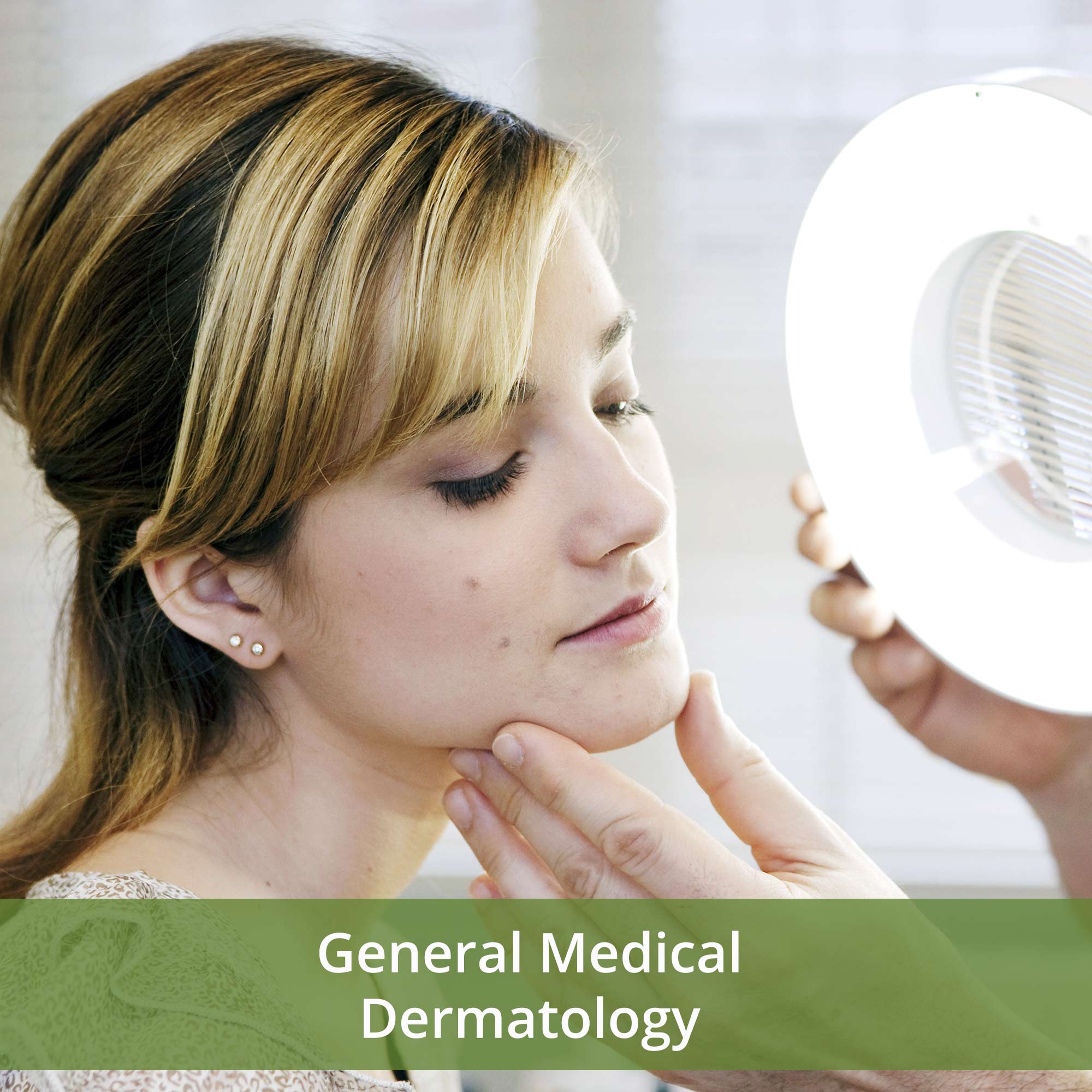SKIN CANCER DIAGNOSIS & TREATMENT
Early detection and diagnosis of skin cancer is one of the most important roles of dermatology in health care. Dr. Hutchin is experienced in detecting and treating skin cancer and has published scientific papers on the topic of basal cell carcinoma, the most common form of skin cancer. We offer complete skin exams looking for suspicious moles and skin cancers and we perform tests to assess the areas of concern. Once a diagnosis of a skin cancer is made, we offer various treatment options depending on the nature of the problem and the preference of the patient.
Mole Checks and Complete Skin Exams
Examination of the skin for suspicious moles is an important means of achieving early detection for skin cancer and other conditions. It is a quick, painless procedure where the physician fully inspects the skin for suspicious growths. During your exam we will review the ABCDs:
A: Asymmetry – Does the top look like the bottom? Does the left look like the right? If uneven shape and size is present, we call that asymmetry, and this may be a sign that the mole is growing abnormally.
B: Border – An uneven jagged border is suspicious, whereas smooth round edges are often, but not always, reassuring.
C: Color – A uniformly brown lesion is a good sign, whereas many shades of black, brown and red is an indication that the spot should be examined.
D: Different – If a mole is different than all the other spots on a person’s body, we identify that as a positive “ugly duckling” sign. Know your skin and examine your body for the changes discussed above. If there are any “questionable” moles, come in for an evaluation.
Skin Cancer Diagnosis and Removal
Skin cancer is an extremely common condition. There are three main types of skin cancer: basal cell carcinoma, squamous cell carcinoma and melanoma. Approximately 1 in 5 people will develop a skin cancer in their lifetime and 80% of those will be basal cell carcinoma. While basal and squamous cell carcinoma are highly curable, melanoma is curable only if detected early. Melanoma can be fatal: a frightening statistic is that someone in the US dies of melanoma every hour. Moles that have irregular borders, varied colors, and recent enlargement should be examined by a dermatologist. If you or a family member has a changing mole, schedule an appointment with us for a skin exam.
More Skin Cancer Resources:
All services and products:

“Dr. Hutchin and staff are the most understanding, courteous, professional office I have ever been associated with. Great Job!”











